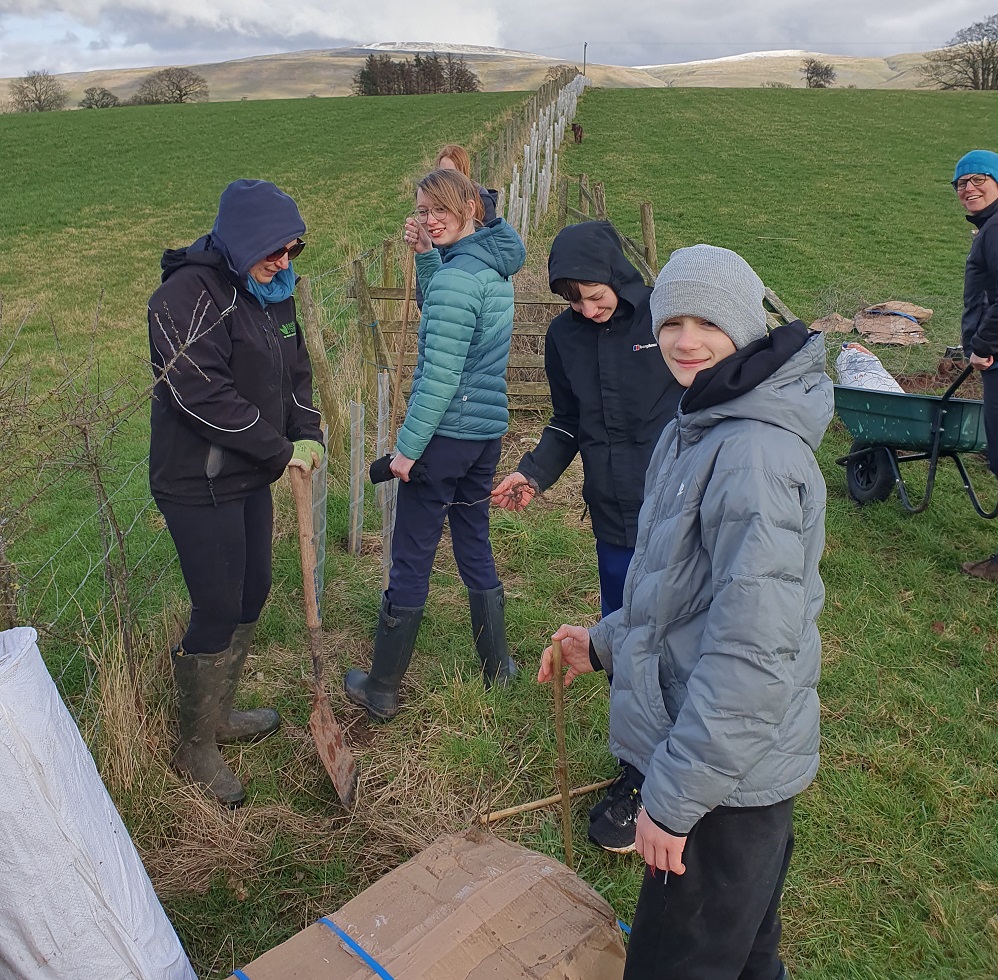
It's a kind of humorous poetry to be planting a windbreak in 60mph winds, straight off the fell, tearing down the fields and whipping away the warmth from our fingers. We need shelter to grow and thrive, just as the creatures of our world do too, whether it's in an open landscape or a small garden. Thickets of root and stem curling and intertwining to create baskets for nests, ladders for claws and paws, and shelter for more tender varieties and produce. When you look at what a native deciduous hedgerow supports in just moth species alone, a new poem forms as leaves are eaten by their caterpillars. Spindle is a food source for the magpie, spindle ermine, scorched, and holly blue butterfly. Large emerald, small white wave, barred umber and nut-tree tussock dine on the hazel coppice, while hawthorn hosts the hawthorn, orchard ermine, pear leaf blister, rhomboid tortrix, light emerald, lackey, vapourer, fruitlet-mining tortrix, small eggar and lappet moths. And these are just a fraction of the species. If you can do anything on your land, in your garden, plant native, deciduous trees, as a windbreak, as shelter, as food, as an offering of reciprocity for all the land gives you, gives us. And it gives us a lot, including potatoes.
While digging for water a few weeks ago, a young boy found a metal contraption which a friend identified, saying they were used to sort potatoes into different sizes. It was about two feet down, suggesting this land grew potatoes but a long time ago. As a child in the local village I have strong memories of the potato harvest, memories of a community working together. I was small, probably four or five, and sat on the flatbed trailer with the little ones while the bigger people threw the potatoes from the earth onto the trailer. We'd sort them into the different buckets, depending on size, on the back of the trailer. It felt like a whole village turned out. We also had the most wonderful harvest festivals in autumn, and as kids would bid on pomegranates spending at least 50p, which 45 years ago felt like a lot of money, and would sit with our pomegranates and needles, and eat them seed by seed.
And this Saturday there will be lots of seeds at PACT’s seedy Saturday. I’ll be talking, along with others, on wildlife friendly gardening, but on Saturday I’ll be looking at new builds and how we can help repair the patchwork of wildlife tapestry in our towns.
Elizabeth Woodcock

